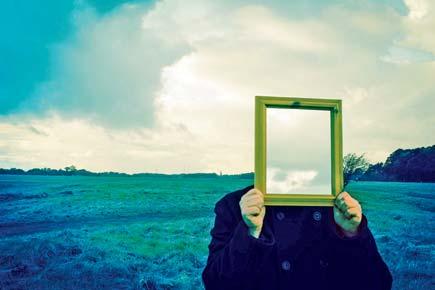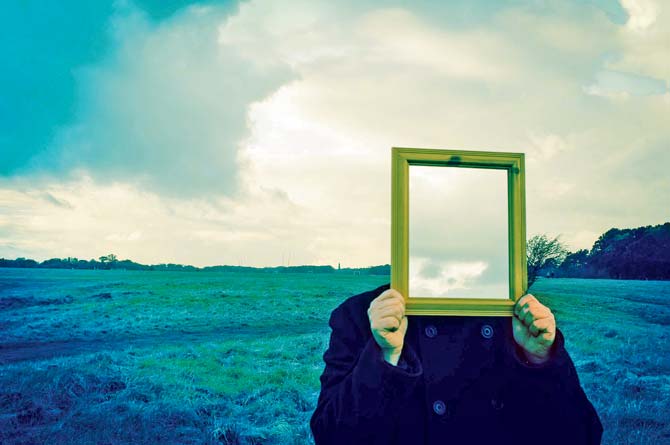I have struggled with mirrors all my life, fearing its reflections, but I am starting to see that the only validation I really needed was my own


I often choose not to look into mirrors because I am afraid of what will stare back
ADVERTISEMENT

It made me recall an incident from my childhood, when my sister and I, who were probably then around seven and eight years old, were playing in front of the dresser in the bedroom of our flat in Kurla. We had been making faces at the mirror, childishly mocking it and ourselves. When we went to the next room to indulge in more infantile pranks, we heard a resounding thud. The mirror had crashed. It wasn’t exactly our fault. We couldn’t evolve an explanation as to why it had the nervous breakdown it so admittedly did. But I don’t think our parents bought our explanation. Or maybe we did in fact behave more aggressively with it than we acknowledged. I will never know, because memories have a way of contorting factual specificities to better fit the narrative we prefer them to construct.
Both incidents, to my mind, seem momentous, because of my alleged innocence, despite my knowledge that objects only function through human manipulation. I should, perhaps, have checked on the string of the mirror in my apartment, but I had taken its tautness for granted. All that remains is the wooden frame and a bag filled with the mirror’s broken bones, too tiny and fractured to be re-assembled.
I’ve struggled with mirrors all my life. I often choose not to look into them. My scorn towards selfie addicts is mixed with a measure of admiration. I am secretly envious of women who can so boldly cast their phone’s gaze upon their body and frame the moment. Even my time spent in trial rooms is fraught with anxiety. I take off my clothes without looking at myself, lest I find reason to be ashamed of my body and dread what it will look like in new clothes.
Elevator rides can be similarly angst-ridden when the fourth wall is a reflecting surface.
Mirrors can be prisons. They can hold us captive to the gaze of the other, so that one’s sense of beauty is tethered to unrelenting norms held by eyes that aren’t our own. My Achilles’ heel was always the aberrational darkness of my skin’s tone. I spent much of my childhood wishing I were fairer, not because I sought fairness itself, but because I was led to believe that it was the only characteristic by which one could be entitled to feeling and being called beautiful. All these years later, my life could be categorised as one long, lonely struggle against those colonial standards. As I grew up, I began to find the same vulnerability in other women. Many female friends I encountered would speak of imagined fat on their arms, balky calves, invisible bellies, skeletal lips, and I always felt astonished about their inability to see how gorgeous they were, how perfectly they could inhabit their bodies if they only resisted the learned temptation towards self-deprecation. When I was turning 30, I made it my mission in life to no longer allow external readings of beauty to infiltrate my practiced sense of self, and to also not rely on validation that came from sources beyond my own consciousness. I gathered that there could never be a gold standard for what constitutes beauty. It had something to do with making peace with your body and embracing its vagaries, not fighting it but loving it despite seeming imperfections.
I’m unsure whether I’ll replace the broken mirror. The one in the bathroom can suffice for eye make-up. If I stand on a stool I should be able to get enough of a glimpse of what I look like before I leave the house to go anywhere. For now, I’m basking in the freedom that comes simply from knowing, without any hard proof, like an article of faith, that as I turn 32, and as I continue to age, I am more beautiful than I ever was before. Sure, I’ve been skinnier, more clear-faced, less grey-haired, but never as content with who I am and my emerging capacity for grace. No mirror can ever reveal such interiority. It can only be felt in the depth of one’s soul.
Deliberating on the life and times of Everywoman, Rosalyn D’Mello is a reputed art critic and the author of A Handbook For My Lover. She tweets @RosaParx. Send your feedback to mailbag@mid-day.com
 Subscribe today by clicking the link and stay updated with the latest news!" Click here!
Subscribe today by clicking the link and stay updated with the latest news!" Click here!






